1931 Take your own country with you
The Geography of Belonging: A Love Story of Horses & Africa
by Oriane Lee Johnston
Cortes Island: Salmonberrry Arts and Publishing, 2023
$25.00 / 9781777149222
Reviewed by Isabel Nanton
*
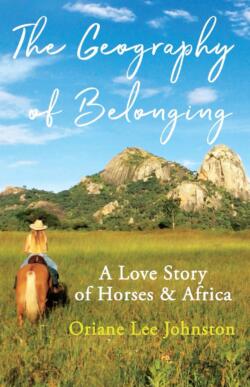 A wise person once posited that one of the many pleasures of reading memoir is identifying parallels with our own lives. If that holds true, Oriane Lee Johnston’s memoir of a decade of mainly horse-packing trips, initially to Mozambique and then Zimbabwe, evoked happy memories in this reader.
A wise person once posited that one of the many pleasures of reading memoir is identifying parallels with our own lives. If that holds true, Oriane Lee Johnston’s memoir of a decade of mainly horse-packing trips, initially to Mozambique and then Zimbabwe, evoked happy memories in this reader.
Although I was born in and grew up in Kenya, another of Africa’s 54 countries with its own unique history, on a visit to Zimbabwe in 1980 soon after its independence, I enjoyed the strong horse-back riding culture in a land where at various times, my brother worked as resident manager both at the Bulawayo Sun and Victoria Falls Hotel. But one does not have to have visited Zimbabwe to enjoy Johnston’s account of her times in the country, written with panache and interestingly-enough for an African memoir, devoid except for the cover of wildlife photos of the country she vividly describes.
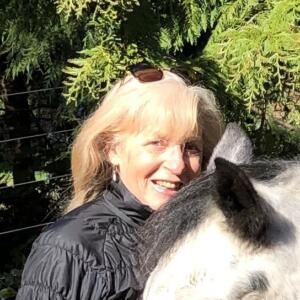
“Choosing a life with horses anywhere in the world means vivid awareness of impermanence the seasons of life and death,” she writes in conclusion to her 340-page book, a comment which also chimes with her meditation practices. And impermanence reflects the continent, especially the countries of sub-Saharan Africa where rainfall is unpredictable for farming and constantly fluid the re-emergence of local identity in the transition from colonial times to full independence.
Inevitably, when we travel, we take our own country with us, the land where my fellow African-born friends say is “where our bones were put together.” So Johnston takes the west coast of Canada with her, where once she was part of a group who prevented industrial logging on Cortes Island — to Zimbabwe where she collaborates in protecting a wilderness area from the incursions of Chinese strip mining. The book not only traces the arc of her relationship with Zimbabwe, but also sensitively documents her love story with Shona expert horseman Stephen Hambani. But Zimbabwe is not Botswana where the country’s first leader at independence Sir Seretse Khama had defied convention to marry English (beloved Lady K.) Ruth Williams, ushering in a culture of racial harmony. Johnston encounters challenges, finally cordially giving her blessing to Hambani to take his next wife.
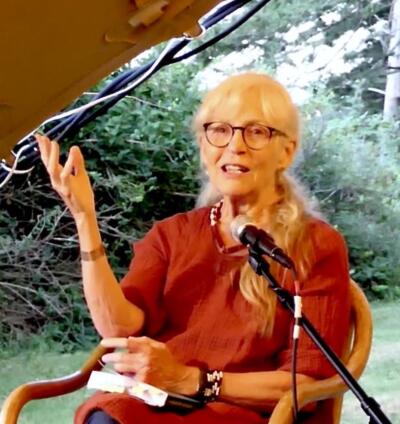
Towards the end of the book, I was intrigued by Johnston’s unpicking of the “ethics of generosity” likely worthy of a whole book in its own right. Still, she feels when she is welcomed into her extended Zimbabwe community with the words “Oriane, you are one with the people,” that what she has given of herself and her culture has been appropriate.
Writing a memoir of time spent in another civilization is complex at best, yet Johnston navigates this with Ziva “wisdom.” Her book brought to mind Aaron Latham’s 1991 book The Frozen Leopard, Hunting my dark Heart in Africa. I contend that time spent on the continent can replenish our reservoirs of courage, Johnston coming to Africa after a partnership of long standing dissolves while, as the late great Jan Morris writes in her introduction to Latham’s book – his African search for self took place in Kenya and Rwanda while “suffering at once from a personal tragedy and from that familiar writer’s problem, a momentary collapse of confidence in his own powers.” Both authors absorb Africa’s healing salve. As Latham points out — on a 1925 visit from Switzerland “even Carl Jung one of the fathers of psychology felt at home in East Africa” experiencing “the most intense sentiment of returning to the land of my youth.”
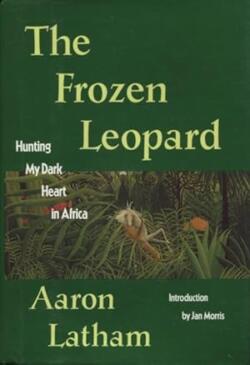
Johnston later shares Zimbabwe with her son Devon and is folded into the country’s maternal embrace, playing sacred mbira music, ever observant of Shona spiritual practices. She appreciates the “absence of self-criticism, which highlights how ensnared I am by that, in the familiarity of Canada.” Ideally, a potted history of Zimbabwe post 1980 might have placed her story on a wider canvas, plus possibly a map delineating her travels.
Modern-day horse fans will particularly enjoy rich, detailed horse lore which sparked memories for me. Ouch! A horse called Moonlight steps on a python, a reminder of a late African herpetologist friend’s comment that though he had been bitten by many species of snakes, the python’s bite was far and away the most painful. Moonlight survives and throughout the book, the rhythm of horses’ hooves in sync with Johnston’s heart providing reassuring reminders of endurance.
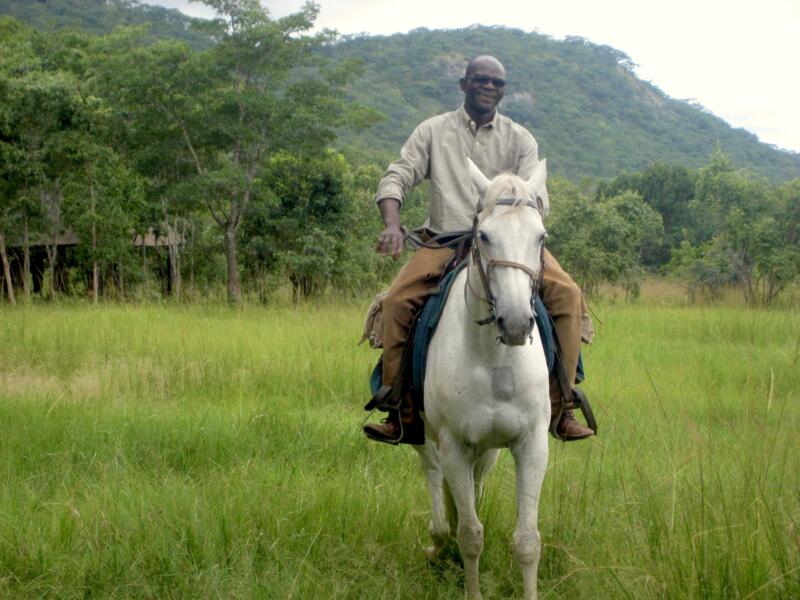
*
Kenyan-born author and Cambridge Press Fellow Isabel Nanton is author of the Sierra Club Guide to BC, Adventuring in British Columbia (Sierra Club Books, 1996, with Mary Simpson). She specializes in writing about East Africa and Western Canada. She has reviewed books for the The Globe and Mail, The Vancouver Sun, and Old Africa magazine in East Africa. Editor’s note: Isabel Nanton has also reviewed books by Mary Bomford, Mellissa Fung, John Schreiner & Luke Whittall, Joe Martin & Alan Hoover, Diana Lary, and Kogila Moodley for The British Columbia Review.
*
The British Columbia Review
Interim Editors, 2023-24: Trevor Marc Hughes (non-fiction), Brett Josef Grubisic (fiction)
Publisher: Richard Mackie
Formerly The Ormsby Review, The British Columbia Review is an on-line book review and journal service for BC writers and readers. The Advisory Board now consists of Jean Barman, Wade Davis, Robin Fisher, Barry Gough, Hugh Johnston, Kathy Mezei, Patricia Roy, Maria Tippett, and Graeme Wynn. Provincial Government Patron (since September 2018): Creative BC. Honorary Patron: Yosef Wosk. Scholarly Patron: SFU Graduate Liberal Studies. The British Columbia Review was founded in 2016 by Richard Mackie and Alan Twigg.
“Only connect.” – E.M. Forster
3 comments on “1931 Take your own country with you”